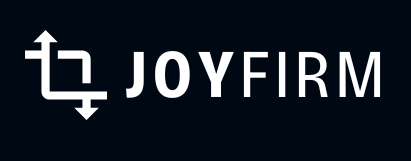From Application to Offer: Automating the Hiring Pipeline
Recruiting top talent is no small feat. The hiring process, from managing applications to onboarding new employees, can be time-consuming and complex. However, with the advent of digital tools like Applicant Tracking Systems (ATS), organizations can now streamline and automate their hiring pipelines for greater efficiency and effectiveness. This guide will walk you through automating your recruitment process from application to offer, ensuring a seamless experience for both recruiters and candidates.
What is an Applicant Tracking System (ATS)?
An Applicant Tracking System is software designed to automate and manage recruitment processes. It centralizes tasks like posting job ads, tracking applications, scheduling interviews, and even onboarding new hires. By automating these repetitive tasks, an ATS saves time, reduces errors, and ensures a consistent candidate experience.
Benefits of an Automated Hiring Pipeline
Efficiency: Automating processes reduces manual effort, speeding up the recruitment cycle.
Improved Candidate Experience: Timely updates and streamlined communication keep candidates engaged.
Data-Driven Decisions: ATS tools provide analytics to help refine hiring strategies.
Understanding the Role of ATS in Recruitment
An ATS is more than just a tool—it’s a strategic asset for modern recruitment.
How ATS Streamlines Recruitment
Application Management: Tracks applications across stages like “applied,” “screened,” and “interviewed”13.
Job Posting Automation: Posts job ads across multiple platforms simultaneously35.
Candidate Sourcing: Integrates with tools like LinkedIn to find top talent15.
Key Features to Look For
When choosing an ATS, consider features such as:
Resume parsing for quick candidate profiling.
Built-in messaging for streamlined communication.
Interview scheduling to avoid conflicts.
Exploring Different Recruitment Software
Several recruitment platforms offer ATS functionality, each with its own strengths.
Popular Options
Greenhouse: Known for its robust analytics and customizable workflows.
Workday: Offers seamless integration with HR systems but may be complex for smaller teams.
JoyFirm: Focused on automation and ease of use, making it ideal for scaling businesses.
Each platform has unique pros and cons, so assess your organization’s needs before deciding.
Translating Recruitment into a Digital Process
Traditional recruitment often involves manual tasks like sorting resumes or scheduling interviews. An ATS digitizes these processes, improving efficiency and accuracy.
Benefits of Automation
Candidate Management: Easily track progress and communicate updates.
Error Reduction: Automated workflows minimize human mistakes.
Scalability: Handle high application volumes without overwhelming your team15.
For example, companies using automation have reported faster hiring times and better candidate quality5.
Employee Onboarding – The Final Step to Automate
Onboarding is a crucial phase that sets the tone for employee retention. Automating onboarding can ensure consistency while saving time.
How Automation Enhances Onboarding
Sends welcome emails and training schedules automatically.
Provides access to digital resources like handbooks or compliance forms.
A well-executed onboarding process builds trust and engagement from day one.
Matching the Right ATS to Your Hiring Pipeline
Every organization’s hiring pipeline is unique. Choosing the right ATS requires aligning its features with your specific needs.
Tips for Selection
Assess your current hiring challenges (e.g., high volume or slow processing).
Look for customizability to reflect your organizational culture.
Prioritize integration capabilities with existing HR systems13.
JoyFirm’s ATS, for instance, excels at adapting to diverse hiring pipelines while maintaining simplicity.
Case Study: Companies Successfully Using ATS
Many organizations have transformed their hiring processes through automation:
Company A reduced time-to-hire by 30% using JoyFirm’s automated workflows.
Company B improved candidate satisfaction scores by 40% through better communication enabled by their ATS.
These examples highlight how automation can drive tangible results in recruitment.
Conclusion
An automated hiring pipeline powered by an ATS is no longer a luxury—it’s a necessity in today’s competitive job market. By streamlining processes from application to offer, you can save time, improve candidate experiences, and make data-driven decisions.
If you’re ready to revolutionize your recruitment process, consider JoyFirm as your trusted partner in automation. Let us help you build a smarter hiring pipeline that aligns with your goals. Reach out to us today!
